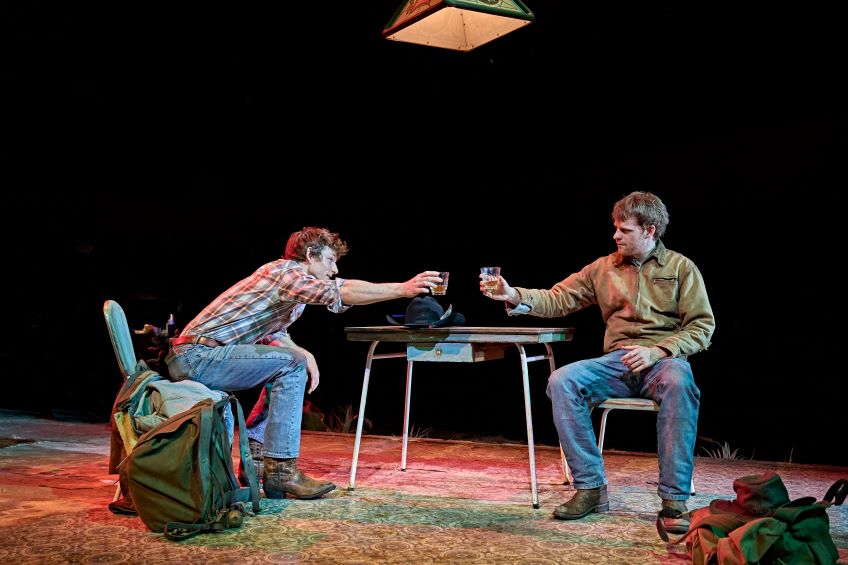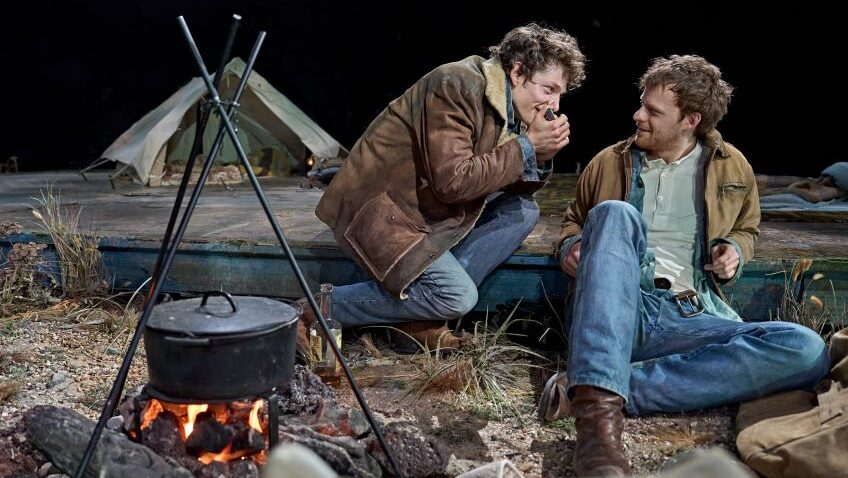Anne Proulx’s awarding-winning short story was made into a muti-award-winning film in 2005 by Ang Lee. Heath Ledger and Jake Gyllenhaal were cast as the two poor cowboys, with no prospects, living in rural working-class Wyoming. Many cinemagoers thought this gay western, an unexpected mainstream hit, should have won the Oscar for Best Film.
Proulx’s story has since been made into an opera. Now Ashley Robinson has made it into a play with songs by Dan Gillespie Sells. The music is played live by a band on the side of the stage and sung by a balladeer, Eddi Reader. The country music provides the private emotion the cowboys cannot articulate.
Jack, an extrovert rodeo rider, and Ennis, a taciturn ranch hand, first met and fell in love when they were sheep-herding in the summer of 1963. They separate to get married and have children. Four years later, they reunite and continue their furtive relationship, remaining in the closet and only meeting for brief camping trips in remote places.

It is too dangerous for Jack and Ennis to openly express their love in a homophobic state like Wyoming, which did not decriminalize homosexuality until 1977. (There is information in the programme about a 21-year-old gay college student being brutally murdered.)
Jonathan Buterell’s realistic 90-minute, no-interval production has two talented young American actors, Mike Faist and Lucas Hedges, making their West End debut, to play respectively Jack and Ennis. You may have seen Faist in Steven Spielberg’s West Side Story and Hedges in Kenneth Lonergan’s Manchester by the Sea. The sexual and emotional chemistry feels right.
The actors give a sensitive account of the lonesome cowboys trying and failing to reconcile their relationship. “I wish I knew how to quit you,” says Jack. “If you can’t fix it, you gotta stand it,” says Ennis, stoical to the last.
Brokeback Mountain is an intimate love story in an enormous landscape. @sohoplace, in-the-round, is good for the intimacy, but the play feels watered down without the mountain, the sheep, and the stunning cinemaphotography; and it is not as heart-breaking as the film.
To learn more about Robert Tanitch and his reviews, click here to go to his website. 




